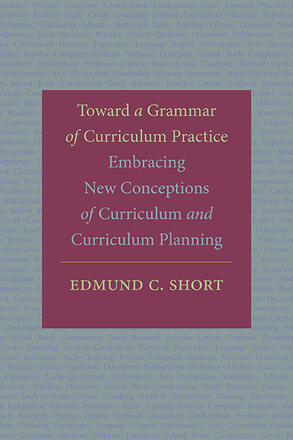
Toward a Grammar of Curriculum Practice
Embracing New Conceptions of Curriculum and Curriculum Planning
Alternative formats available from:
Provides a new conceptualization of curriculum and of curriculum planning that is clearer, more functional, more adequate than those previously available.
Description
Curriculum planning can be conceptualized in various ways, and curriculum planners necessarily must adopt a particular approach in order to facilitate their thinking and decision-making. However, the history of curriculum planning suggests that existing conceptualizations are sometimes confusing, imprecise, or not as helpful as they might be. There is a need for a new conceptualization that overcomes the limitations of these earlier conceptions. Through conceptual analysis and concept development, the author presents curriculum planning as a form of educational practice distinct from other practices such as teaching, administration, and policy making. Short's "grammar of curriculum practice" describes a set of key concepts and the meaningful relationships among them that define the essential elements of curriculum and of curriculum planning.
Edmund C. Short is Professor Emeritus of Education at The Pennsylvania State University and Graduate Faculty Associate in the College of Community Innovation and Education at the University of Central Florida. His many books include Forms of Curriculum Inquiry (also published by SUNY Press); Leaders in Curriculum Studies: Intellectual Self-Portraits (coedited with Leonard J. Waks); and A Coherent Curriculum for Every Student: Curriculum Proposals for Possible Adoption.
Reviews
"Short has identified a valid short-coming in the field--that is--truly identifying and separating the many facets/problems connected to understanding and defining "curriculum practice" from those of "teaching practices" which in fact can lead to a common grammar and common understanding within the field … Short has utilized both typical and traditional sources in his investigation as well as more current and contemporary ones. I would use this text in my master's degree course in curriculum development and probably refer to it greatly in my advanced curriculum course." — Robert C. Morris, University of West Georgia
"This much-needed book … defines the discourses and responsibilities of curriculum planners. The work describes ten critical components of curriculum and provides practitioners with the tools they need to address those components. This book is a must-read for graduate students in curriculum as well as practitioners engaged in curriculum planning." — Stephen Gordon, Texas State University